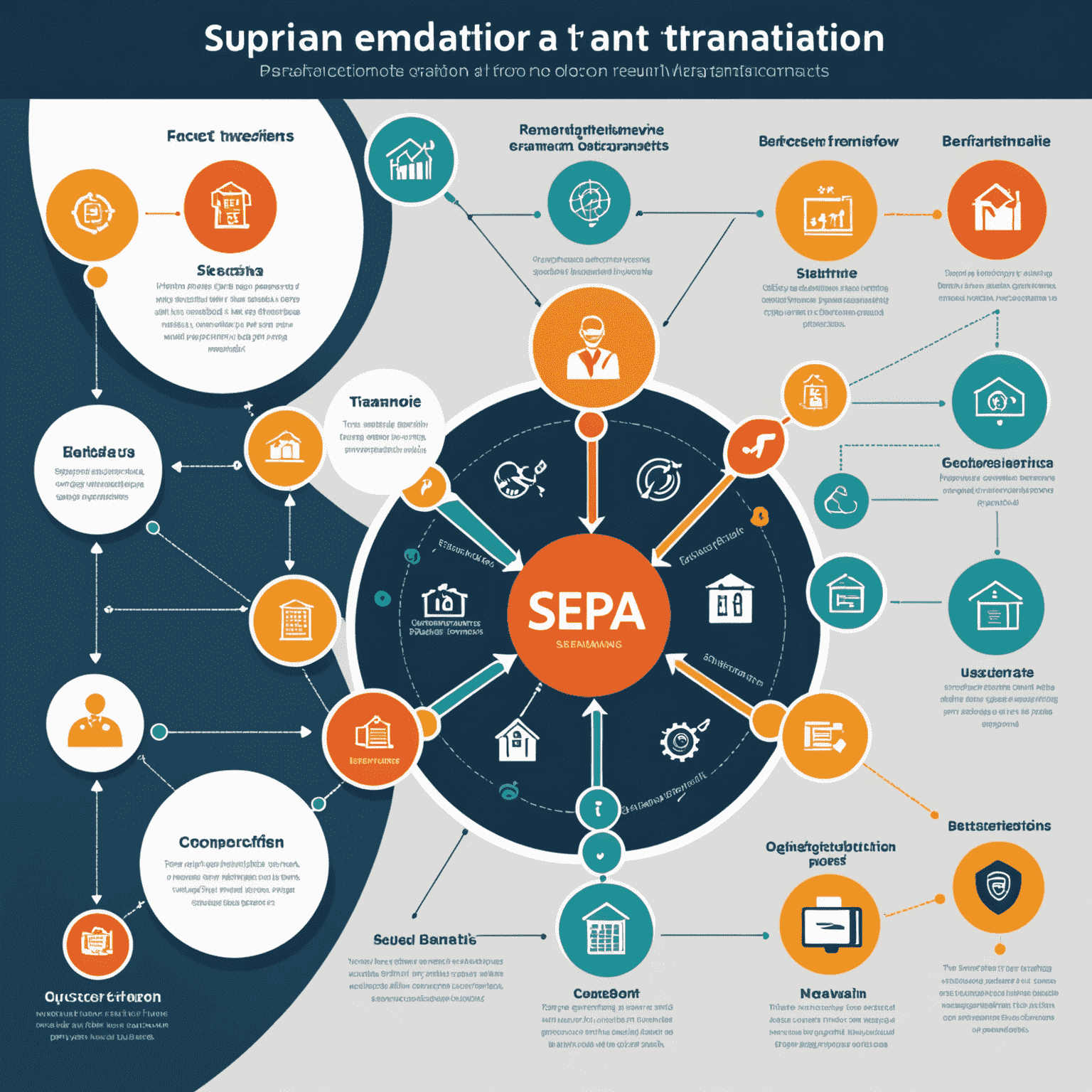Understanding SEPA: A Guide for European Businesses

For Small and Medium Enterprises (SMEs) operating in Europe, understanding the Single Euro Payments Area (SEPA) is crucial for efficient cross-border transactions. This guide will help you navigate the intricacies of SEPA and its impact on your business operations.
What is SEPA?
SEPA, or the Single Euro Payments Area, is an initiative of the European Union that simplifies bank transfers denominated in euro. It allows businesses and individuals to make cashless euro payments to anyone located anywhere in the SEPA area, using a single bank account and a single set of payment instruments.
Key Benefits for SMEs
- Simplified cross-border transactions
- Reduced costs for international transfers
- Standardized payment processes across Europe
- Improved cash flow management
- Enhanced competitiveness in the European market
SEPA Payment Types
SEPA offers various payment types to suit different business needs:
- SEPA Credit Transfer (SCT): For sending and receiving euro payments within the SEPA zone.
- SEPA Direct Debit (SDD): Allows businesses to collect payments directly from customers' bank accounts, with their prior authorization.
- SEPA Immediate Credit Transfer (SCT Inst): Enables real-time euro transfers, 24/7/365.
Implementing SEPA in Your Business
To leverage the benefits of SEPA, consider the following steps:
- Ensure your bank offers SEPA-compliant services
- Update your accounting and payment systems to support SEPA formats
- Collect IBAN and BIC information from your customers and suppliers
- Train your finance team on SEPA procedures and regulations
- Consider partnering with a payments platform specializing in local payment solutions for SMEs in Europe
The Future of SEPA and European Payments
As the European payments landscape continues to evolve, staying informed about SEPA developments is crucial. Future enhancements may include:
- Further integration with emerging technologies like blockchain
- Expansion of Immediate payment capabilities
- Enhanced security measures to combat fraud
- Potential inclusion of non-euro currencies
By embracing SEPA and staying abreast of its developments, SMEs can streamline their payment processes, reduce costs, and position themselves for growth in the European market. Remember, platforms like onebusinessway are designed to help SMEs navigate the complexities of European payment systems, offering tailored solutions for your business needs.
